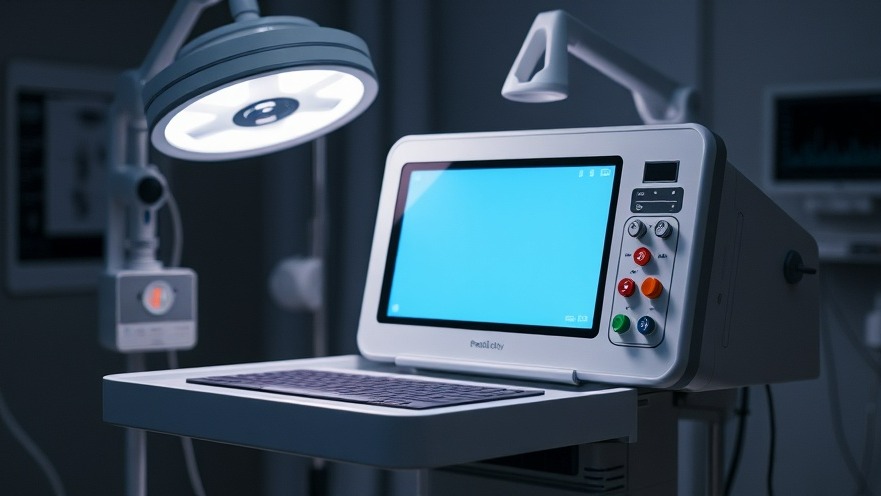
Understanding the Reshoring Movement in Medical Device Manufacturing
The ongoing reshoring of medical device manufacturing to the United States has garnered significant attention in recent years, especially in the wake of the COVID-19 pandemic. Numerous factors, including tariffs, international supply chain disruptions, and a heightened focus on national security, are driving this trend. For owners of concierge medical practices, understanding the potential advantages and challenges associated with reshoring is critical in securing their local foothold in an increasingly competitive market.
Why Reshoring Matters: Strengthening Supply Chains
At its core, the reshoring movement aims to bring manufacturing closer to healthcare providers and patients, improving accessibility to essential medical technologies. The COVID-19 pandemic exposed vulnerabilities in global supply chains, as shortages of critical devices and protective equipment became rampant. By relocating manufacturing domestically, practices can ensure a more resilient supply chain that better meets patient needs and avoids the disruptions experienced during the height of the pandemic.
Economic Considerations: The Cost-Quality Balance
However, the path to reshoring is complicated. One of the foremost challenges is the financial aspect. Manufacturing overseas has historically been more cost-effective due to lower labor and production expenses. For high-volume, price-sensitive products, this cost discrepancy can be significant. Pursuing reshoring requires careful financial planning, as concierge medical practice owners must evaluate whether the benefits of quicker access to devices and improved supply chain reliability outweigh the higher manufacturing costs.
Workforce Testing: Bridging the Skill Gap
The shift towards domestic manufacturing also highlights the skilled labor shortage facing the U.S. medical device industry. Over the past twenty years, many specialized manufacturing roles have migrated overseas, resulting in a domestic workforce with fewer qualified candidates in precision manufacturing and quality control. As practices consider reshoring, recruiting and developing skilled personnel will be essential. Offering training and development programs can help bridge this gap.
Infrastructure Requirements: A Natural Partnership?
On the infrastructure front, while production may be resettled in the U.S., the dependency on international suppliers for raw materials and components persists. Establishing a self-sufficient domestic supply chain would require substantial investment and collaboration across various sectors. This presents an opportunity for concierge medical practices to advocate for local suppliers, forming partnerships that support the development of an integrated network, thereby enhancing the overall resilience of healthcare delivery.
Regulatory Landscape: Navigating Compliance Hurdles
Additionally, the transition to U.S.-based manufacturing is further complicated by stringent regulatory requirements governing the medical device industry. Every shift in production location invites a new round of validation processes and compliance checks, potentially slowing down timelines and increasing expenses. For medical practices, understanding these regulations can offer a competitive edge. Engaging with legal experts can ensure compliance, allowing practices to adapt swiftly without sacrificing quality or safety.
The Role of Incentives: Federal and State Supports
Despite the hurdles, the winds of change are blowing favorably for reshoring efforts. With federal and state-level incentives aimed at boosting domestic manufacturing, there is a growing momentum for this transition. Concierge medical practice owners can leverage these incentives to fortify their business plans. Staying informed about government programs that could offset costs or support workforce development can provide a crucial advantage in solidifying their market presence.
Future Outlook: Embracing Innovation and Resilience
Ultimately, the key question for medical practice owners pondering the reshoring of manufacturing is not merely whether to do so, but how to navigate the complexities of cost, quality, and innovation. As tariffs create a shifting economic landscape, practices must adopt flexible strategies that prioritize resilience while maintaining a focus on patient service and satisfaction.
In conclusion, the reshoring of medical device manufacturing brings both challenges and opportunities. Boarding the reshoring train may create a stronger supply chain and more reliable access to essential medical technology. By staying informed, embracing workforce development, and advocating for local manufacturers, concierge medical practice owners can position themselves for successful adaptation in the ever-evolving healthcare environment.
Are you ready to take action in shaping the future of your concierge medical practice? Engage with local supply chain opportunities and explore workforce development initiatives to enhance your operational resilience and patient care!
 Add Row
Add Row  Add
Add 




Write A Comment